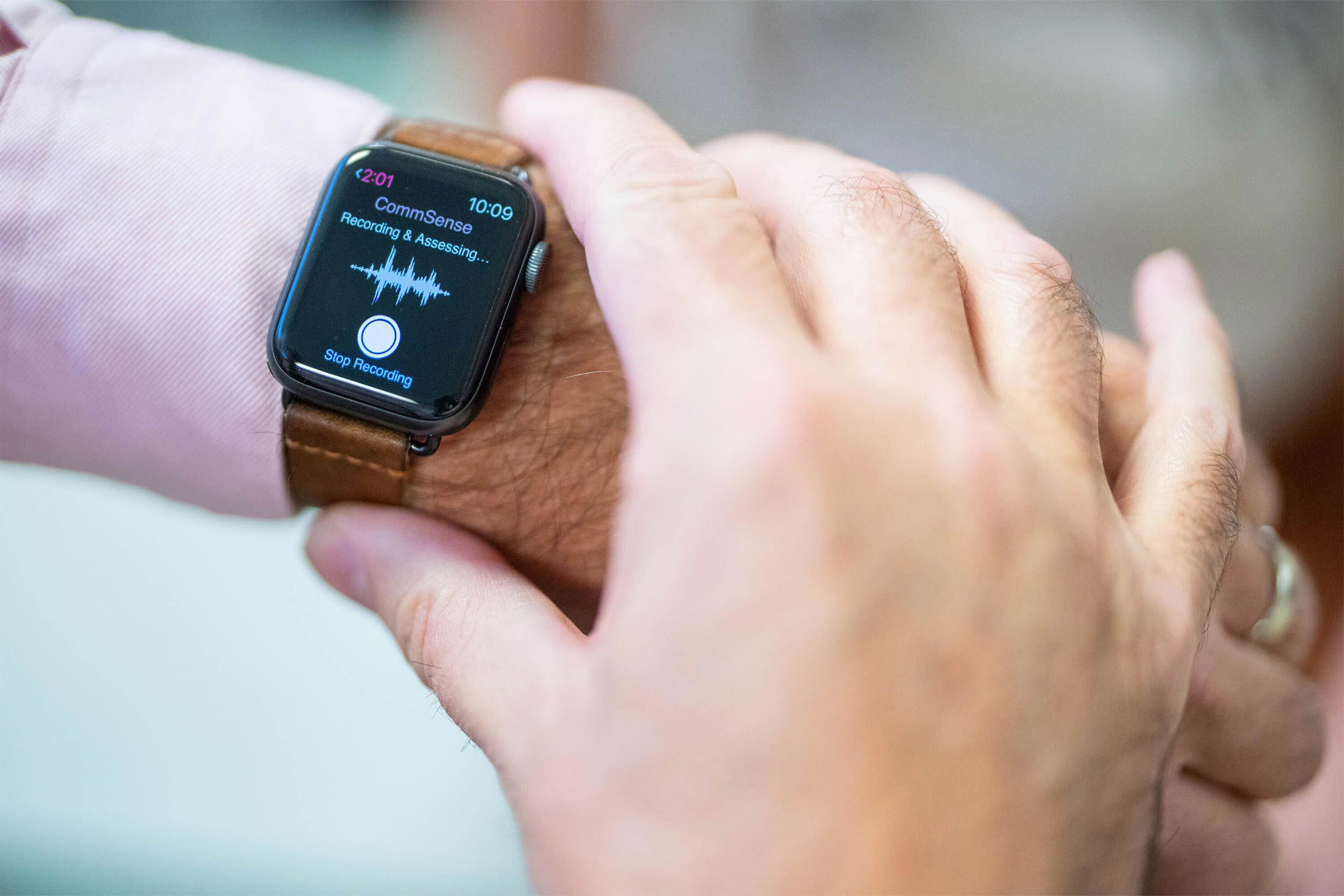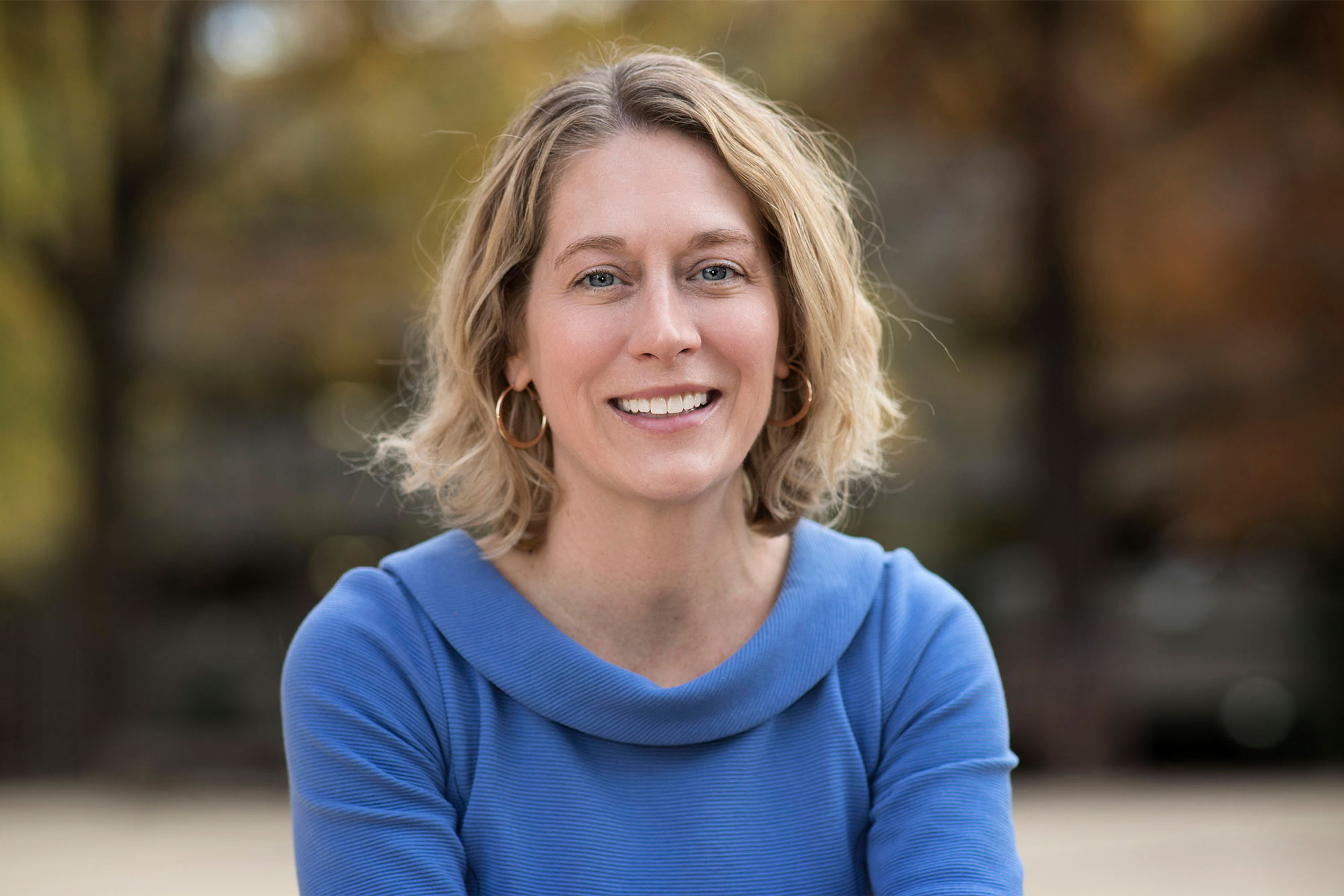The right words from a doctor or nurse can reduce a patient’s pain, promote healing and calmness, and even encourage a patient to take medications properly.
But clinicians’ communication skills and confidence – sometimes referred to as “bedside manner” – vary widely. To help, University of Virginia health scientists and engineers have developed a prototype of a special smartwatch that records these conversations, scores them and offers suggestions for improvement.
The prototype is called CommSense, created through a partnership between UVA’s schools of Nursing, Medicine and Engineering.
Virginia LeBaron, an associate professor in the School of Nursing who is leading the team working on the wearable technology, said the idea came to her after noticing how involved a friend was in tracking sleep data through a FitBit.
“I thought, ‘We really need something like that to help health care providers communicate more effectively with patients in real time,’” said LeBaron, who earned NIH funding to develop smart technology that helps patients with cancer monitor, predict and manage their pain at home. “It’s taken a while to turn that idea into reality, but, thanks to an amazing team, the results are promising. I’m excited to see how CommSense will perform in real clinical encounters.”



.jpg)







